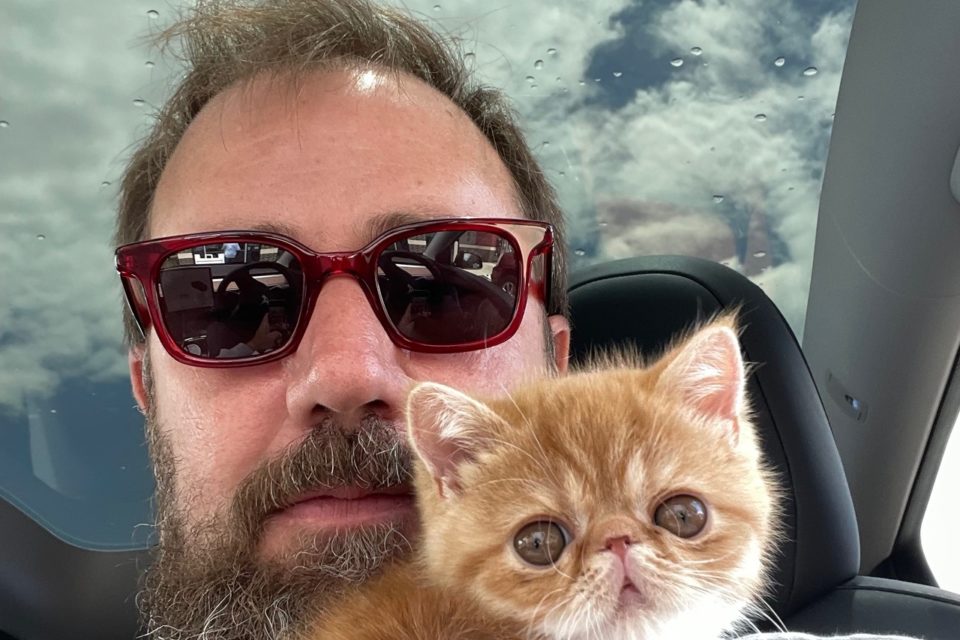No aspect of music has been hit harder by the pandemic than live touring. As we face yet another round of cancellations and uncertainty in 2022, we spoke to Nashville based booking agent Adam Voith for our series Taking Stock of 2021. His roster includes a mix of emerging artists and big names like Vampire Weekend, Bon Iver and Mumford & Sons. Voith helped steer them through lockdown, reopening and Delta, navigating unprecedented challenges and, Voith says, unexpected rewards. WNXP’s Jason Moon Wilkins began by asking what it was like this time last year.
Adam Voith: By January, the shock of 2020 and the sort of roller coaster ride with so many ups and downs already, that uncertainty was just as normal as it could be at that point. But I think it was just a lot of hoping that the plans that had been made and moved so many times were actually going to happen at some point in the new year.
Jason Moon Wilkins: Do you remember what that moment was like when you when it seemed like the calendar flipped to, OK, well, I guess were touring in the summer? And here we go?
AV: You know, interestingly, when you work in an agency that has different genres, some started working sooner than others. So we were hearing internally that in the country world there were shows going up before it seemed like artists on my roster were doing so. And then you would hear the same thing geographically. So, there was kind of a concept called the Swiss Cheese, where there’s just like some things going on, but there were huge holes in it and they were random.
JMW: As you have moved further into this, have you seen those different geographical, political and social realities factor into the decisions you’ve had to make when it comes to booking and routing shows?
AV: Not anymore. There might have been a period where there was some calculus, now it seems like we’re just open. I think for tour managers, on the road is where it really becomes important when you have different municipalities with different rules or different states with different rules in terms of vaccines, masks, behavior. I think it’s all over the board. I’ve traveled a little bit now and seen shows in different places. And it’s very interesting how there’s no one set of behaviors in a closed room for concerts.
JMW: What are youhearing back from your artists about reengaging with fans and getting back out there and doing something they weren’t allowed to do for so long?
AV: It’s been f***ing awesome. It’s been really cool because I think one of the things that was really clear during the pandemic is that while we tried and while there were some valiant efforts and even some decent stuff out there, you can’t do concerts on the computer. I feel like there’s been an innocence and an excitement to just being like, ‘Oh my God, we played a show tonight!’ And just watching artists rediscover why they do this, how they do it, what it does for them and for those around them and vice versa, what the audience is doing for them. Just being ecstatic about being able to do their jobs again has been really cool to watch.
JMW: Has the touring industry faced some of the same problems with worker shortages that most industries have in getting crews back together to get back on the road?
AV:In terms of the artists and their crews that’s a very close relationship often. And I was really pleased to watch artists and crews try to figure out ways to help each other. You know, artists have other revenue streams and the crews do not. And so, I think you saw artists trying to take care of their close crewmates through this, which was really inspiring to watch. But until everyone’s really back at it, I don’t know how many folks decided, like, ‘I can’t wait. I have to go find a different kind of work.’ But I do think there’s been some fallout and it was brutal. And I’m sure they’re happier than anyone that we’re finding ways to get back out there safely again.
JMW:Nationally, what do you think is the hidden story of the return to touring that people aren’t talking about but should be?
AV: That’s a really good question. I don’t know if I have a good answer for this. I think we all learned very quickly how fragile this thing is and how you need every bit of this thing to work. You need the bartender all the way to the singer of the band. If you can’t do some of it, you almost can’t do any of it. And that’s where, like when we tried the pod touring or socially distanced shows — the reality is for so many different artists and venues and people trying to put this together, you realize if you can’t fulfill the audience demand, you can’t actually do this without the finances falling apart. And so, the hidden story might just have been how lucky we all were that this was going on all the time, especially here in Nashville. Constantly every single night, hundreds and hundreds of opportunities to see music all over the country. So I hope that people hold it even closer now and just recognize what a really special thing it is to come together and watch music. I just think it’s absolutely necessary that it’s happening in our culture.
- Adam Voith’s Roster at CAA
Bon Iver, Mumford & Sons, Vampire Weekend, Father John Misty, Kevin Morby, The Staves, ROSTAM, Cassandra Jenkins, The Tallest Man on Earth, Hiss Golden Messenger, Bear’s Den, Erin Rae, Izzy Heltai, Vanillaroma, Skegss, Kean Kavanagh

